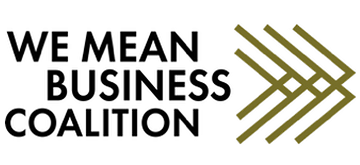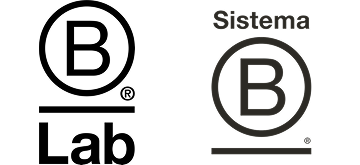A letter to the Heads of COP30 Delegations
Organisations representing and serving over six million SMEs across the globe urge governments to implement policies to empower SME Climate Action.
Organisations representing and serving over six million SMEs across the globe urge governments to implement policies to empower SME Climate Action.

Dear Heads of COP30 Delegations,
Small and medium-sized enterprises (SMEs) are vital to accelerating the global net zero transition. SMEs make up 90% of businesses globally, contribute over 50% of the global GDP, and are the foundation of international supply chains. They are crucial to thriving economies and communities, supporting the livelihoods of 2 billion people per year. Their progress in reducing emissions is a major driver of the implementation and delivery of Nationally Determined Contributions (NDCs), and key to the resilience of global value chains.
Despite their importance, SMEs face significant risks if left behind in the net zero transition, often lacking the resources and support needed to take climate action and adapt to the direct and indirect impacts of climate change. In addition to practical tools for managing climate risks and reducing emissions, SMEs need enabling policies and targeted incentives to drive action. In the SME Climate Hub’s latest annual survey, 80% of respondents reported either low government support, or a lack of awareness of available incentives*. This lack of supportive government policies remains one of the top barriers preventing SMEs from taking action to adapt to climate related risks.
To reach their own net zero targets, we urge governments to adopt four key policy priorities that will empower SMEs to effectively cut emissions and contribute to building new thriving economies.
Policymakers can acknowledge the distinct attributes of SMEs, including their needs into climate and nature policymaking, by:
Governments can actively encourage and catalyse SME engagement, making net zero investment a viable business strategy for all SMEs by:
The provision of clear, streamlined guidance will enable SMEs to more easily take action to identify and address climate related risk. Governments can ensure that SMEs access the right tools and resources to progress on their climate action journey, through:
Governments can facilitate SMEs’ access to appropriate climate-related funding through:
Effective climate action depends on leadership from policymakers, decisive action from large corporations and financial institutions and the active engagement of SMEs. As the driving force of economies around the world, small businesses must be equipped to contribute to the development of a thriving new net-zero economy.














Download a PDF of the letter and download our digital toolkit for resources to share on your social media channels.
Sign up for our newsletter to stay updated with the latest climate developments.
See the steps you can take and get help building a plan to cut your business emissions today.
Revisa los pasos que puedes dar y obtén ayuda para elaborar un plan para reducir las emisiones de tu empresa hoy mismo.
اطلع على الخطوات التي يمكنك اتخاذها واحصل على المساعدة في وضع خطة لخفض انبعاثات شركتك اليوم.
Découvrez les mesures que vous pouvez prendre et obtenez de l’aide pour élaborer un plan pour réduire les émissions de votre entreprise dès aujourd’hui.
Se vilka steg du kan ta och få hjälp med att utforma en plan för att minska dina företagsutsläpp idag.
Veja as medidas que você pode tomar e obtenha ajuda para elaborar um plano para reduzir as emissões da sua empresa hoje mesmo.
It’s easy to make the commitment. Just complete a form sharing your intent to reduce your emissions.
You’ll earn public recognition for taking the first step.
Es fácil comprometerse. Solo tienes que completar un formulario compartiendo tu intención de reducir tus emisiones.
Ganarás reconocimiento público por tomar este primer paso.
الالتزام سهل. ما عليك سوى تعبئة نموذج لمشاركة عزمك على تقليل انبعاثاتك.
سوف تحظى باعتراف عام باتخاذك الخطوة الأولى.
S’engager est simple. Il suffit de remplir un formulaire indiquant votre intention de réduire vos émissions.
Vous gagnerez une reconnaissance publique pour avoir fait le premier pas.
Det är enkelt att göra åtagandet. Fyll bara i ett formulär där du delar med dig av din avsikt att minska dina utsläpp.
Du kommer att få offentligt erkännande för att du tagit det första steget.
É fácil assumir esse compromisso. Basta preencher um formulário informando sua intenção de reduzir suas emissões.
Você receberá reconhecimento público por dar o primeiro passo.

Sign up for our newsletter to stay updated with the latest climate developments.
Welcome back! Please enter your details.
Don't have an account? Create account to access our tools or make the SME Climate Commitment
Don't have an account? Create account to access our tools or make the SME Climate Commitment
Please enter your email address. You will receive a link to create a new password via email.